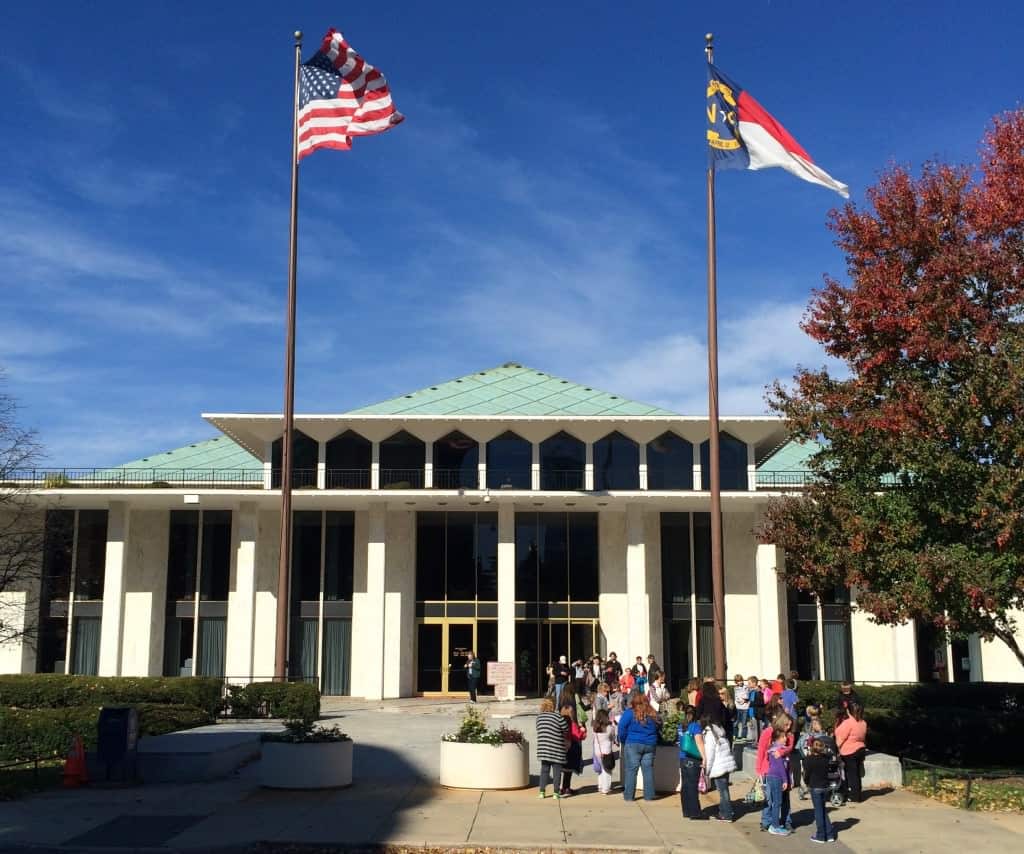

As everyone in and around the General Assembly anxiously waits for lawmakers to finish the budget process, a trio of influential laws are making their way through the legislative chambers. All three could have serious implications for education:
TABOR
The North Carolina Senate moved forward with a “Taxpayer Bill of Rights,” also known as TABOR, Wednesday. If passed by the House, signed by the governor, and adopted by voters in a referendum, North Carolina would become only the second state to adopt it. The Bill passed Wednesday has three main provisions:
- capping the state personal income tax rate at 5 percent,
- creating an emergency savings fund that could only be spent after a two-thirds majority vote in the legislature,
- restricting annual state budget spending to population growth plus inflation — this provision is the actual “Taxpayer Bill of Rights.”
Originally, those three provisions would have all gone before voters in three separate constitutional amendments. But lawmakers made a change that bunches the three provisions together into one amendment for the voters to decide on.
The only other state to implement TABOR is Colorado. The state first put TABOR into effect in 1992, but took a break from it for five years in 2005 because of declining public services, according to the Center on Budget and Policy Priorities.
The Center also noted the followed consequences:
- Colorado went from 35th to 49th nationally in K-12 education spending as a percent of personal income,
- higher education funding went from 35th to 48th as a percentage of personal income,
- Colorado was near the bottom in the country for providing children with “full, on-time vaccinations,”
- Colorado became the worst state in the country for its share of low-income children lacking health insurance.
This website, A Balancing Act, allows you to explore the impact of TABOR on the Colorado budget.
Proponents of the TABOR bill in North Carolina see it as a way to help control government spending.
State Treasurer Janet Cowell has said that passage of the bill could put the state’s credit rating at risk.
Proponents of TABOR scoff at the suggestion, saying that TABOR will make North Carolina even more attractive because the state will be more financially responsible.
Phyllis Resnick, lead economist at the Colorado Futures Center in Colorado says TABOR is a bludgeon that has had serious consequences for her state.
“Because population plus inflation isn’t an equally applied growth measure, we have squeezed out a lot of funding for other programs over the years,” she said.
She also notes that the implementation of TABOR in Colorado has made tax reform difficult. She said that those considering TABOR should be sure they’re happy with the tax system they have.
“You end up with really antiquated tax codes because you can’t modernize,” she said.
At the 2015 Governmental Research Conference in Denver, there were presentations on TABOR by the National Association of State Budget Officers and an attorney involved in the TABOR lawsuit.
Achievement School District
Working behind the scenes, Rep. Rob Bryan, (R-Mecklenburg) has been crafting a bill that would set up an Achievement School District made up of five of the lowest-performing elementary schools in the state, according to the Charlotte Observer. The schools in the district would be taken over and managed by charter operators. If the initial district was successful, Bryan hopes to see it expanded.
According to Lindsay Wagner over at N.C. Policy Watch, the bill has been inserted into Senate Bill 95. That bill originally focused on RIF policies for local boards of education. You can see the draft of the Achievement School District bill at the end of her article.
This kind of model for turning around schools isn’t unique. Tennessee created an Achievement School District three years ago, according to the Charlotte Observer article. This year, 29 schools will be part of it. The state touted the math and science proficiency gains from students at the schools.
But the Charlotte Observer also quotes a Tennessee education blogger who calculated differently the proficiency results for the six schools that have been in the district for three years. He found then unimpressive.
Regardless, what is not up for dispute is achievement in reading. It fell in the Achievement School District as well as everywhere else in Tennessee.
Still, the Achievement School District in Tennessee has become a model for states around the country, according to this Chalkbeat article. Nevada, Pennsylvania, Georgia and Arkansas are all on the cusp of launching their own versions.
But Chris Barbic, the guy leading the Tennessee Achievement School District, says a lack of adequate charter companies could be a challenge for other states, according to Chalkbeat.
“The bottom line is that there are not a lot of great charter operators to begin with, and there are even fewer who understand how to do turnaround,” he said in the article.
New Orleans is another place where charters are being used to turnaround schools. There was huge takeover after Hurricane Katrina.
The change has been largely successful in improving student performance, according to the Charlotte Observer article.
The expert quoted in the article, however, says that the situation in New Orleans may have been unique.
Charter School Financing
Way back in April, a bill that changes the funding formula for charter schools passed the Senate.
The difference in current funding between traditional public schools and charter schools is complicated, but it basically comes down to this:
Charter schools get the same per-pupil funding from the state and local districts as traditional public schools.
Certain kinds of revenue can be held back by school districts — sales tax revenue distributed according to property value is one example, according to WRAL News.
Charter schools may also be denied sales tax refunds, gifts, and grants restricted as to use, and trust funds.
All of the examples listed have been nixed by this bill, meaning that charters now get equal access to all those funds… kind of.
The problem is this: if a donation is made to one traditional public school, or school sports team, club, etc., that money could now be distributed to charter schools even though the money was meant for a specific school, according to WRAL.
There is an out, but it would require that the school is sure to put the donated money into a separate account — one that charter schools can’t pull from — and whoever is donating the money will have to specify that the money is to go into that separate fund.
Critics worry that the changes will mean charter schools will get money they’re not entitled to. Proponents say charter schools will finally be getting their fair share of taxpayer dollars.
The bill has sat in the House basically since it passed the Senate. Behind the scenes, we’ve heard that talks are underway to find a compromise that will make the bill viable in the House, but so far, those talks have not bubbled up to the level of public awareness.
Watch Out
So, in the days and weeks ahead, keep an eye out for action on these bills. TABOR is moving to the House. We expect action in the House on charter school financing. And look for Rep. Bryan’s Achievement School District bill to come out into the open. And, of course, while you’re looking for those, keep your fingers crossed for a budget.


